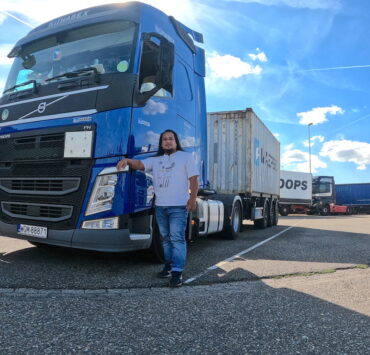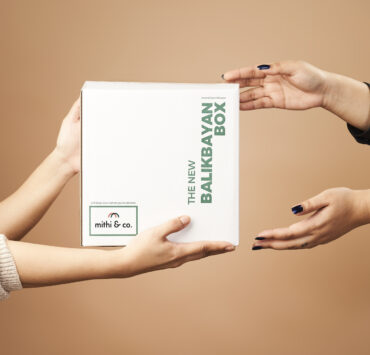In Sudan, temperatures can go up 49 degrees Celsius, yet around 300 Filipinos work and live here. A Filipina teacher tells us her experiences as an expat living in Khartoum, Sudan.
Working in international schools has taken my family to exciting places in and out of the Philippines. When my 2-year contract in Dhaka, Bangladesh ended, I was offered to teach in an international school in Khartoum, Sudan. Initially, I was a bit hesitant about moving to a country known for its sweltering heat and for tearing down Christian churches.
As most schools only allow two dependents, having three dependents left me with limited options. Gladly, the offer was given to include scholarships and all other benefits (flights, international insurance, local living allowance) to my three kids (then aged 5, 12 & 15). I was also able to connect with Filipinos in Khartoum and they assured me that Sudan is not as bad as it looks in the media.
When we arrived in this Northeastern African country in August 2018, I felt transported back to the 80’s. Khartoum looked like the Philippines four decades ago. It is backward in terms of infrastructures, and Khartoum city is sparsely populated. Having lived in the Philippines and Bangladesh, it was a relief to see a country without so many people, where cars drive on wide roads. Grid-locks only happen when a stoplight is broken.
I was able to connect with Filipinos in Khartoum and they assured me that Sudan is not as bad as it looks in the media.
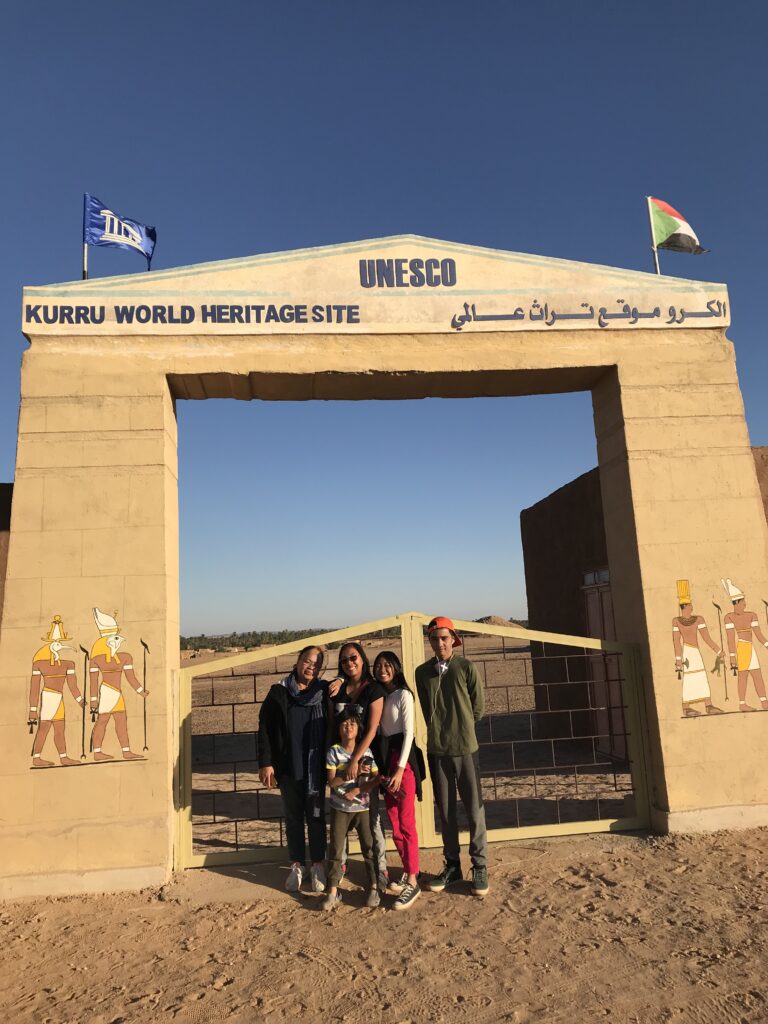
Living in the expat bubble
The school rented a spacious 3-storey apartment to be our home for the rest of our stay and provided us with a car to help us move around. My workplace is a huge facility that includes the school, a swimming pool, gym and access to a golf course, horseback riding and more.
I teach science to grades 6, 9, and Diploma Chemistry to grades 11 and 12. Our students are mostly Sudanese, Europeans, Tunisians, Iraqis and Pakistanis. The school also boasts of a diverse group of teachers. There are six of us Filipino teachers in the school. The environment is generally pleasant and the parents, mostly expats, are nice and supportive of the teachers.
Initially, I was a bit hesitant about moving to a country known for its sweltering heat and for tearing down Christian churches.
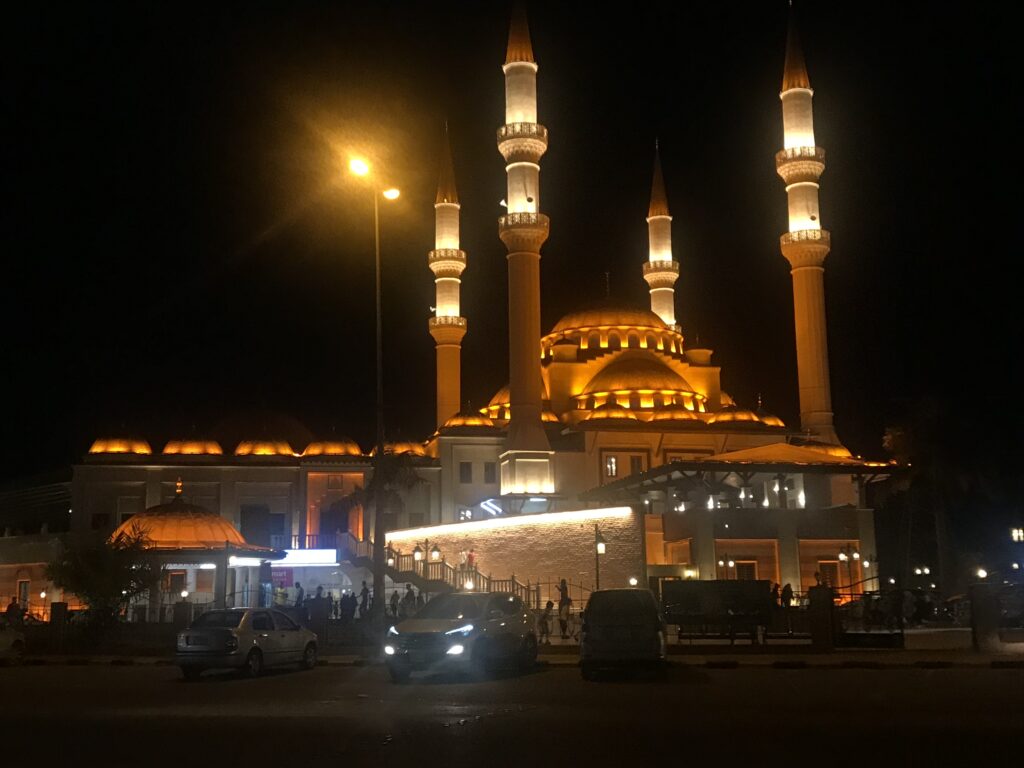
Safety in Khartoum, Sudan
Outside the school grounds however is where reality reveals its true face. Sudan’s tumultuous history plays a significant role in the country’s political situation. Sudan has been plagued with three bloody civil wars that lasted years. Just months after we arrived, demonstrations against the 30-year rule of President Omar al-Bashir began, which resulted in his ouster months later. The whole country was put on lockdown and we were just given a 2-hour notice to pack our bags and go back to the Philippines on a special evacuation flight and waited it out until things went back to normal.
Because of long years of oppression, it seems to me that the value of life in Sudan is very low. At the height of the Covid-19 pandemic, the locals were not wearing masks. They were even laughing at us for wearing masks. Fatalism is a common attitude. If you die, you die. Witnessing deaths is normal to them. People get killed by the police, military, diseases, and for the world to stop because of an illness didn’t make sense to them. This is how one of our house guards described to me why Covid-19 didn’t seem to bother them at all.
Fatalism is a common attitude. If you die, you die.
Khartoum is boiling hot. And dusty. It is like living close to an oven exhaust. The weather can go up as high as 49 degrees. My kids and I have learned to adapt to the heat. We actually find Sudan’s heat much more pleasant than the Philippines.
Sudan is one of the poorest countries in the world. Its 19.6% unemployment rate is attributed to the government’s lack of stability and poor economic strategy.
For an expat, Sudan is cheap. The cost of living is around $650 monthly. There are not many malls in the capital. The two popular ones, Al Waha and Afra malls pale in comparison to the giant malls we have back home.
My friends are always surprised every time I tell them that Khartoum is safe. I never felt unsafe here although lately because of the hyperinflation, petty crimes have gone up. But compared to my time in Dhaka, which was right after the terrorist attack on 2 July 2016, Sudan is relatively safer. Of course, there are some areas outside Khartoum, especially the east and south of the country, that are considered dangerous for expats.
When locals see me in the street, they greet me with “Ni hao” mistaking me for a Chinese. People are not used to seeing foreigners but they are not rude.
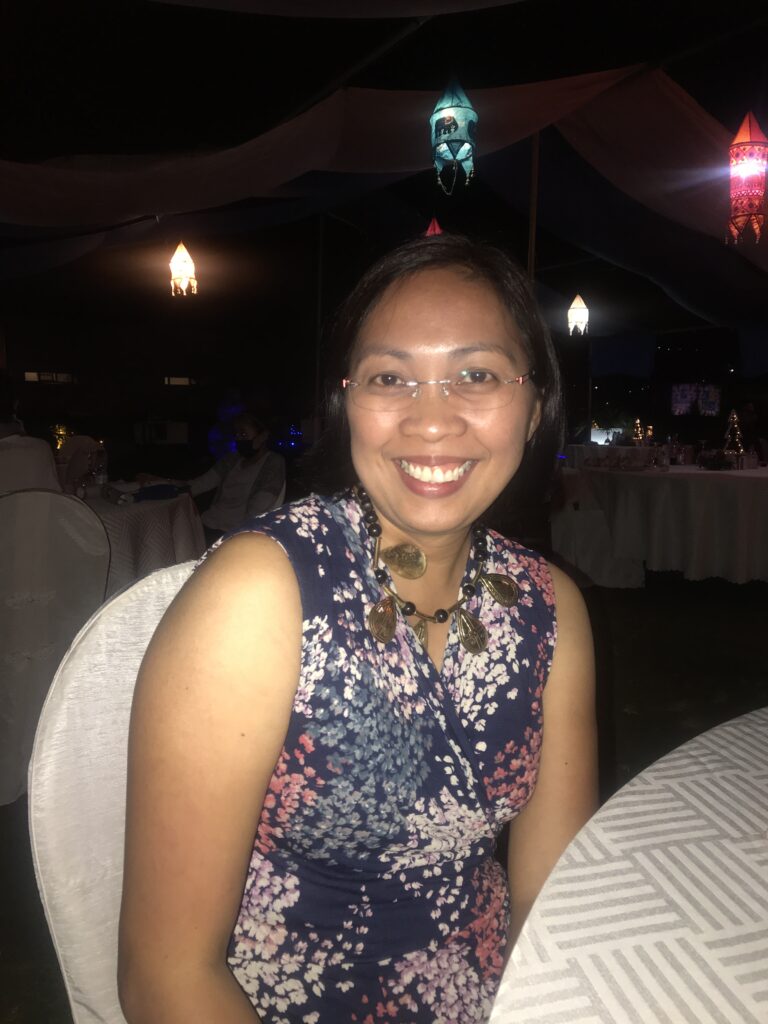
Sudanese culture
When locals see me in the street, they greet me with “Ni hao” mistaking me for a Chinese. People are not used to seeing foreigners but they are not rude. I learned some conversational Arabic, the main language in Sudan, and see to it that I use Arabic numbers when buying in the market.
Sudanese are beautiful and gentle people. If there is an altercation in the streets, violence is out of the picture. In school, I have made lifetime friendships with some of our Sudanese teachers and staff. They always make new teachers and students feel welcome, and they are very helpful in showing us around the city or places to go. Despite being a predominantly Arab country, I don’t cover my head when I go out of the house, but I also don’t wear shorts to show respect to their conservative culture.
There are not a lot of cultural activities in Sudan. At school, we hold Sudan week where we celebrate their culture: dance, music, arts and crafts, local products, and taste Sudanese traditional meals. The meal is shared within the family, and during Sudan week, around ten people would share a big plate with falafel, Arabic bread and a variety of meat dishes, eating together with their hands. It is their version of our boodle fight. My favorite Sudanese food is falafel. I like their lentils and their salads too. Foul (fava) beans are a staple. Sudanese food is delicious and the portions are big.
Filipino lechon and sabong
Going to grocery shops always reminds me that we are far from Asia. Most products are unfamiliar, there are no Filipino staples like rice, soy sauce, fish sauce. There are certain stores that sell these products but supply can be erratic.
There are around 300 Filipinos in Sudan working as teachers, managers, mechanics, and domestic help employed by other expats. Some of them plant and sell vegetables, and some even discreetly slaughter pigs in their backyard. There is also a pig farm in Sudan owned by a Syrian. One will also be surprised to know that there is a “sabungan” hidden somewhere in the city.
Filipinos in Sudan are under the Philippine embassy in Egypt. There is an honorary consulate office in Khartoum but the embassy performs consulate services twice a year, in March and November. When I was new here, I wondered why there were no Pinoy organizations in the Filipino community. I was told that there were efforts before but that didn’t work out. I hope in the future there will be at least one because it is always good to know that you have your kababayans who have your back. When I got sick of Covid, I experienced the unique care of my Filipino friends, bringing us water, medicines and groceries.
My friends are always surprised every time I tell them that Khartoum is safe. I never felt unsafe here.
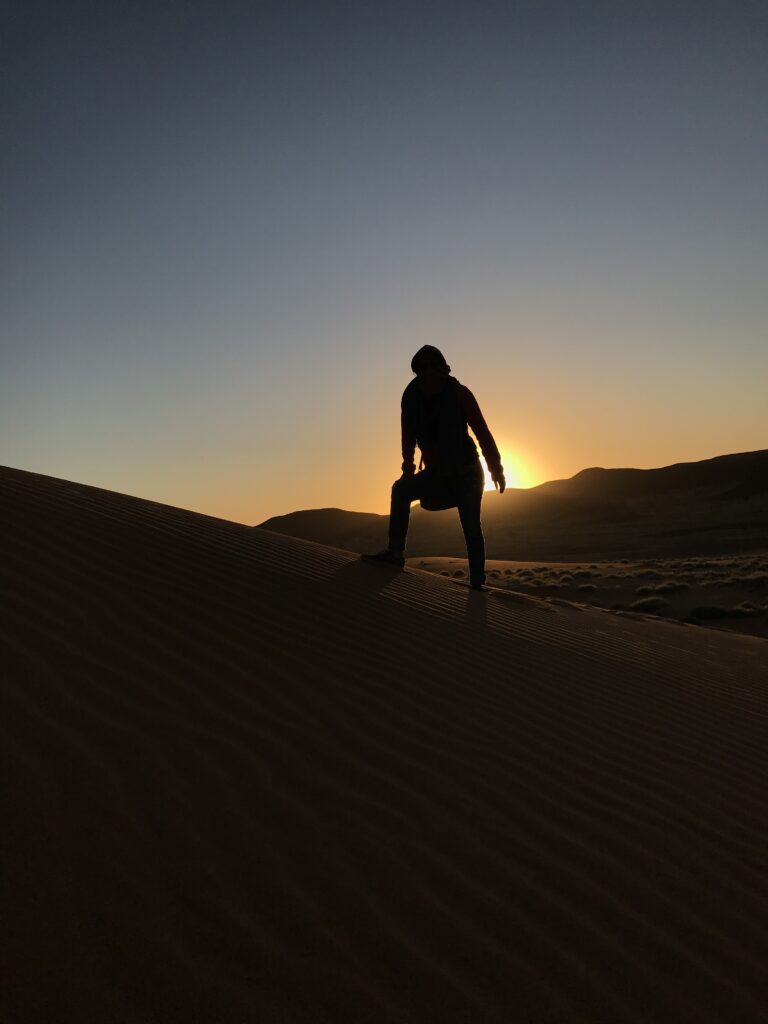
Open-mindedness and patience
Despite being a largely muslim country and the occasional crackdowns on the Christian church, 5.4% Christians can still practice their faith. There are Catholic and Coptic Christian churches in Sudan, but we go to an evangelical church with Filipino pastors. The church is registered and recognized. Services are held in a rented house so we make sure we soundproof the walls well so that we don’t disturb the neighbors.
At Christmas, we put up Christmas trees and decorations and sometimes organize Christmas parties. We make our homes festive because we don’t feel the Christmas spirit outside.
My life in Sudan has been an eye-opener. I have learned that the value of life differs in every country. That governments can make a strong impact on the lives of their citizens. I want my children to be grounded, to always have this sense of empathy towards the less fortunate.
Living abroad takes a lot of open-mindedness and patience. Racism is rife wherever we go. You’d be surprised to find out that Filipinos can be very racist too. At school, there are some teachers which carry the “white superiority” attitude. Oftentimes, they are the ones who have just left their countries to work internationally; those who have limited international exposure. As Filipinos, we have to work doubly hard to get recognition. And I have accepted this as a challenge.



